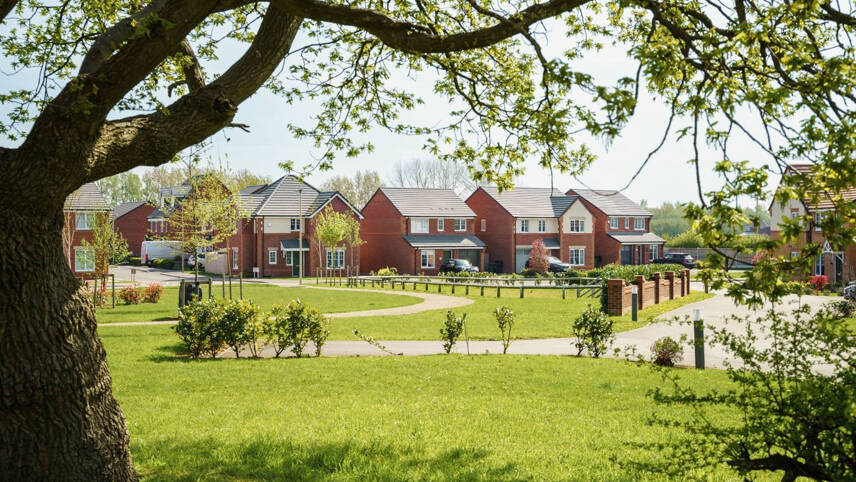Register for free and continue reading
Join our growing army of changemakers and get unlimited access to our premium content

Image: Taylor Wimpey
The legal requirement for developers to deliver Biodiversity Net-Gain (BNG) came into effect for developers of major housing projects (0.5 hectares or more, and/or 10+ dwellings) on February 12.
Now, from today (2 April), the requirement will be expanded to small housing developments and all commercial and mixed-use developments. It will impact almost 30,000 planning applications each month in England.
Developments that do not impact priority habitats and only impact less than 25 square metres of on-site habitat are among some of the only projects classed as exempt from BNG. A full list of exemptions can be found here, from the Department for the Environment, Food and Rural Affairs (Defra).
Under BNG rules, developers will need to prove they have delivered a minimum uplift of 10% in the amount of biodiversity at the site, relative to its biodiversity prior to their intervention.
Plans for boosting biodiversity must be submitted alongside a planning application and must cover the site’s management for at least 30 years. Defra has this week released updated guidance for planning for small sites.
The Government will permit, in some cases, the delivery of net-gain through improvements off of the site. Developers will need to purchase credits before commencing work at the site and, in this case, the Environment Bank assumes liability for biodiversity management for the 30-year period.
Building on the resources available from Defra, the Future Homes Hub and Planning Advisory Service (PAS) have launched a new free digital hub of advice.
The ‘BNG Online’ platform can be accessed by local planning authorities and small and medium-sized building development businesses. It provides overarching advice and a dedicated digital calculator and planning tool for developers from tech startup Joe’s Blooms. Software for local planning authorities is being provided by Verna.
“BNG is a transformational opportunity to revitalise nature and communities across England, but it won’t fulfil this potential without digital tools to manage the complex data involved,” said Verna’s co-CEO Dr Matthew Brown.
Next steps
The Government is hailing the BNG mandate as a “vital tool” to reverse the decline of nature.
The UK is regarded as one of the world’s most nature-depleted countries. Since 1970, species have declined by around one-fifth on average. Recent assessments have proven that this depletion is ongoing, with progress off-track towards most Government nature targets.
Some environmental groups, however, would like to see the threshold increased to at least 20% and rules tightened to ensure that gain is credible and is on-site in the vast majority of cases. These changes have been backed by Wildlife and Countryside Link and other NGOs.
BNG requirements are set to be expanded again in 2025 to cover industrial developments and other nationally significant infrastructure. However, the Government has already confirmed an exemption for high-speed rail networks.


Please login or Register to leave a comment.